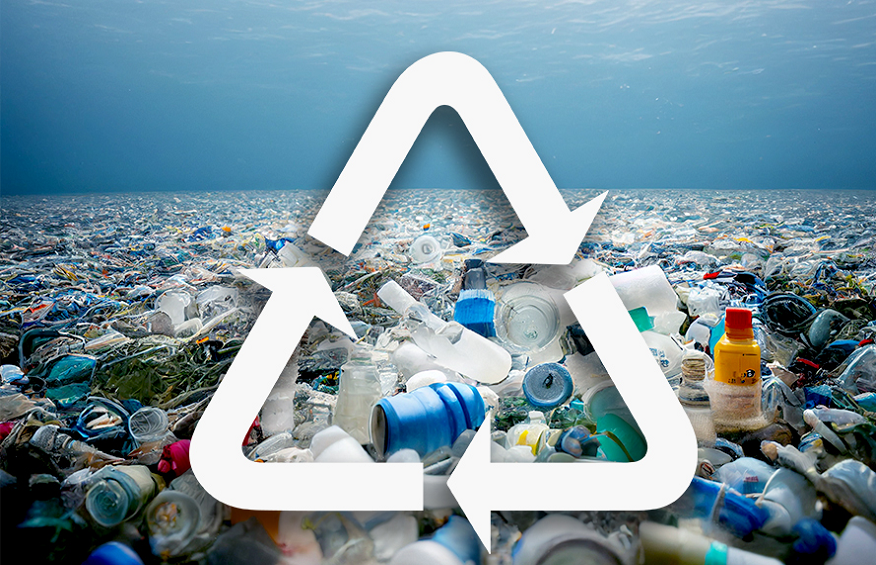Plastic waste has become a global crisis, infiltrating every corner of our planet and wreaking havoc on our environment. From landfills overflowing with discarded plastic bottles to oceans choked with plastic debris, the consequences of this epidemic are dire. But fear not! In this blog post, we will explore innovative solutions for tackling plastic waste head-on. Join us as we delve into game-changing technologies and biodegradable alternatives that can help save our planet from drowning in plastic pollution. It’s time to think outside the box and embark on a journey towards a cleaner, greener future! So grab your eco-friendly beverage of choice, sit back, and let’s dive into the world of innovative solutions for reducing plastic waste!
The Impact of Plastic Waste on the Environment
Plastic waste has become a pervasive and destructive force in our environment. Its impact is felt across the globe, from densely populated cities to remote landscapes. The sheer volume of plastic waste generated each year is staggering, with an estimated 300 million tons produced worldwide.
One of the most alarming consequences of plastic waste is its effect on wildlife. Marine animals often mistake floating plastic debris for food or become entangled in discarded fishing nets, leading to injury or death. The devastating images of sea turtles with straws lodged in their nostrils and seabirds with stomachs full of plastic fragments are heartbreaking reminders of the urgent need for change.
Furthermore, plastic waste contaminates our soil and water sources. As plastics break down into smaller particles known as microplastics, they infiltrate ecosystems and pose a significant threat to both plant life and aquatic organisms. These tiny particles can also find their way into our drinking water and food chain, potentially endangering human health.
The carbon footprint associated with producing and disposing of plastic exacerbates climate change by releasing greenhouse gases into the atmosphere. Additionally, the extraction of fossil fuels required for manufacturing plastics further depletes natural resources while contributing to air pollution.
The environmental impact doesn’t stop there – it extends beyond what meets the eye. Plastic production relies heavily on non-renewable resources such as oil and gas, perpetuating dependence on finite energy sources while driving up carbon emissions during production processes.
As we witness firsthand the detrimental effects that plastic waste has on our environment, it becomes clear that innovative solutions are urgently needed to mitigate this crisis before irreversible damage occurs.
Traditional Methods of Dealing with Plastic Waste
Plastic waste has become a global concern, and finding effective ways to deal with it is crucial. In the past, traditional methods of managing plastic waste mainly focused on recycling and incineration. Recycling involves collecting and processing used plastics to create new products. While this method helps reduce plastic pollution, it has its limitations.
One challenge is that not all types of plastics can be recycled due to their composition or contamination. Additionally, the process requires significant energy consumption and often produces lower-quality materials. Incineration, on the other hand, involves burning plastic waste at high temperatures to generate energy or heat. However, this method releases harmful pollutants into the atmosphere.
Another traditional approach for dealing with plastic waste is landfilling. Plastic items are disposed of in landfills where they can take hundreds of years to decompose fully. Unfortunately, landfills contribute to soil and water pollution as well as greenhouse gas emissions.
To address these issues associated with traditional methods, innovative solutions have emerged over time. These solutions aim to reduce dependence on single-use plastics by promoting alternatives such as reusable bags and containers made from environmentally friendly materials like biodegradable polymers or natural fibers.
Furthermore, advancements in technology have led to breakthroughs in chemical recycling techniques that can convert even hard-to-recycle plastics into useful products without compromising quality or causing environmental harm.
In conclusion (as per your request), while traditional methods of dealing with plastic waste have played an important role in mitigating its impact on the environment, there is a need for more innovative solutions that prioritize reducing demand for single-use plastics through sustainable alternatives and implementing advanced recycling technologies.
Innovative Solutions for Reducing Plastic Waste
Plastic waste has become a global environmental crisis, but there is hope on the horizon. Entrepreneurs and scientists around the world are coming up with innovative solutions to tackle this problem head-on. From recycling advancements to biodegradable alternatives, here are some of the most promising initiatives in reducing plastic waste.
One exciting development is the use of advanced recycling technologies. Traditional methods often result in downcycling, where plastics can only be recycled into lower-quality products. However, new techniques like chemical recycling and pyrolysis have emerged, which break down plastic into its basic components for reuse in manufacturing high-quality materials.
Another way to combat plastic waste is through packaging innovation. Companies are exploring sustainable alternatives such as compostable packaging made from plant-based materials or even edible coatings that protect food without leaving behind harmful residues.
The rise of bioplastics also offers a solution to our plastic problem. These bio-based materials can be derived from renewable resources like corn starch or sugarcane and have properties similar to traditional plastics but with one key difference: they are fully biodegradable.
Moreover, governments and organizations worldwide are implementing policies and campaigns aimed at reducing single-use plastics. Bans on items like straws, bags, and cutlery encourage consumers to opt for more sustainable options while raising awareness about the detrimental effects of plastic waste on our planet.
Education plays a crucial role in changing behaviors towards plastic consumption and disposal habits. By increasing awareness about the long-term impacts of plastic pollution and providing practical tips for reducing personal usage, individuals can make informed choices that contribute positively towards solving this issue.
These innovative solutions offer hope for a future free from the burden of excessive plastic waste. With continued efforts from individuals, businesses,and governments alike we can create lasting change that benefits not only our environment but also future generations!
Biodegradable Alternatives to Single-Use Plastics
Plastic waste has become a global crisis, causing immense damage to our environment. One solution gaining traction is the use of biodegradable alternatives to single-use plastics. These innovative materials offer a more sustainable option for everyday products.
One such alternative is bioplastic, which is made from renewable resources like cornstarch or sugarcane. Unlike traditional plastic, bioplastics break down naturally over time, reducing their impact on landfills and ocean pollution. They can be used in various applications, including packaging materials and food containers.
Another promising alternative is compostable packaging made from plant-based materials such as bamboo or bagasse (sugarcane residue). This type of packaging can decompose within months in industrial composting facilities, leaving behind no harmful residues.
In addition to these options, there are also edible alternatives emerging on the market. For example, researchers have developed a seaweed-based film that can replace plastic wrap for food preservation. Not only does it reduce plastic waste but it’s also safe for consumption if accidentally ingested.
These biodegradable alternatives hold great promise in reducing our reliance on single-use plastics and mitigating their environmental impact. However, widespread adoption will require collaboration between governments, businesses, and consumers alike.
It’s crucial for individuals to make conscious choices by opting for products packaged in biodegradable materials whenever possible. By supporting companies that prioritize sustainability and investing in research and development of these alternatives ourselves!
Together we can create a future where plastic waste becomes a thing of the past! Can you imagine how much cleaner our oceans will be? How much less landfill space will be filled with non-decomposable trash? Let’s embrace innovation and take action towards a greener world!
Conclusion
In conclusion, it is clear that our current approach towards managing plastic waste needs a drastic shift. We must prioritize environmentally friendly alternatives while encouraging responsible behavior among consumers. Through innovation-driven measures combined with active participation from all stakeholders involved, we have the potential not only to reduce but ultimately eliminate the damaging effects of plastic waste on our planet.










